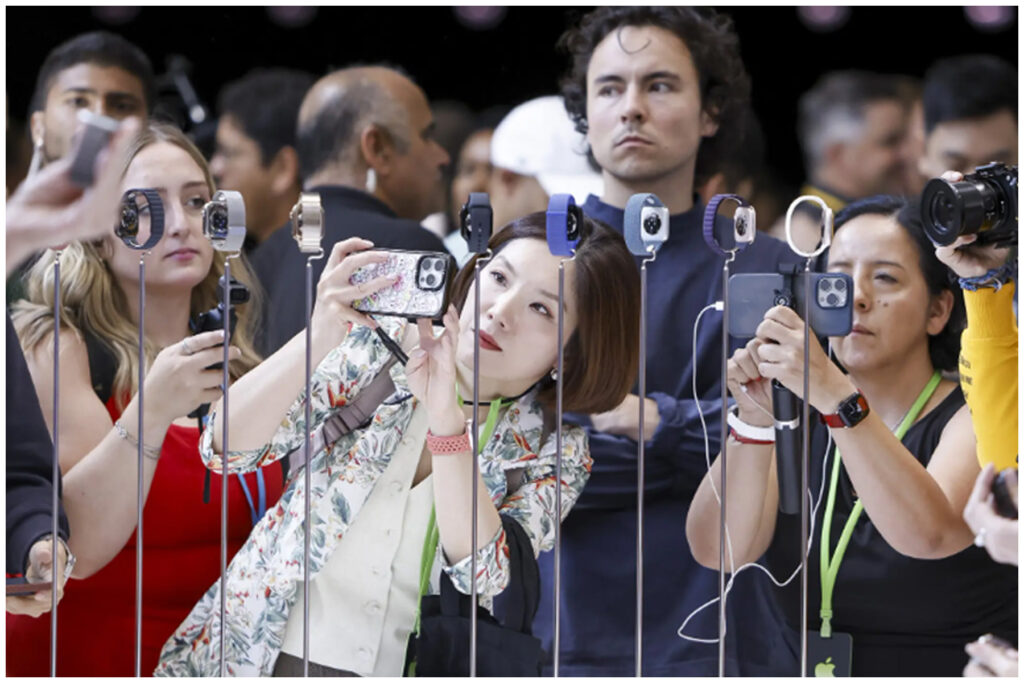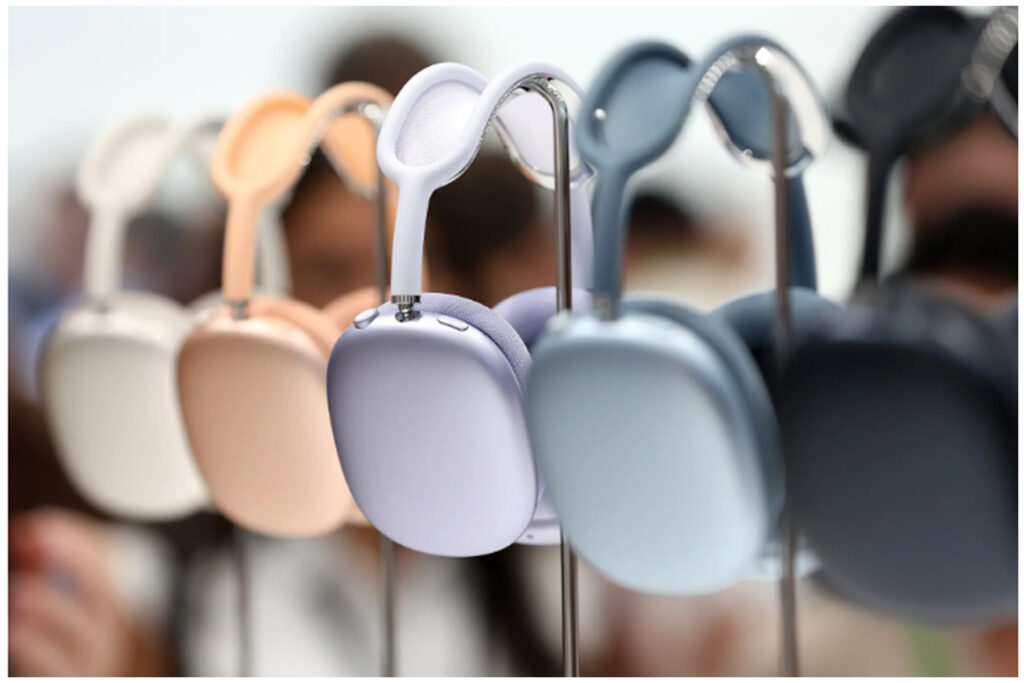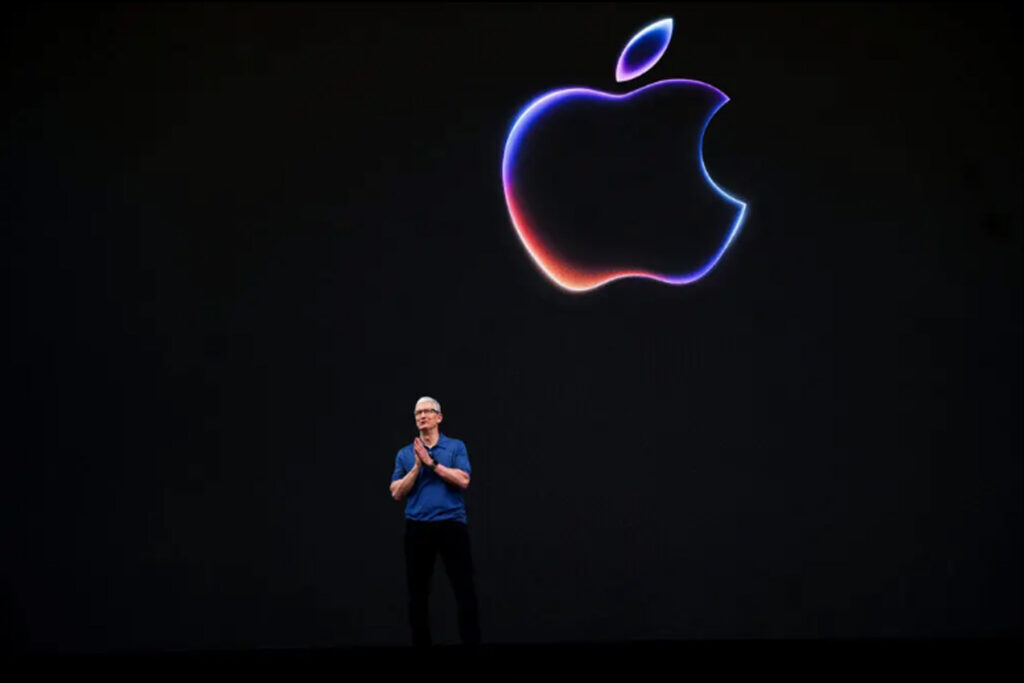The company also showcased a new Apple Watch and AirPods to reduce noise at concerts or near construction sites.
The iPhone has grown predictable. Over the past seven years, it has generally had the same appearance, with small enhancements to its cameras, processors, and battery life.
But on Monday, Apple attempted to break the cycle of predictability by introducing its first artificially intelligent iPhone.


The iPhone 16, unveiled in a prerecorded video at the company’s futuristic Silicon Valley campus, comes in four different models designed to run the company’s generative artificial intelligence system, Apple Intelligence. The company stated that the phones will be able to organize messages, provide writing suggestions, and utilize an enhanced Siri virtual assistant.
In addition to announcing these changes to the iPhone, the company introduced the Apple Watch Series 10, featuring rounder corners and a larger, brighter display that is almost 10% thinner. It also introduced a new AirPods Pro, capable of automatically reducing noise at concerts or near construction sites and acting as a professional-grade hearing aid.
The new phones are pivotal for Apple and the broader tech industry. Apple’s business has sputtered recently as iPhone users have held on to their phones for longer. It has made a major bet by realigning its engineering teams to work on artificial intelligence, hoping the technology can answer questions, create images, and write software. “The tech industry hopes Apple can help mainstream artificial intelligence (A.I.). Microsoft, Google, and Samsung have all added generative A.I. features to their products but have yet to see those capabilities widely adopted. This code will persuade people to buy new devices.” But Apple has shown in the past that it can wait to embrace emerging technology and popularize it, as it did with digital music players, smartphones, and smartwatches.
“The question is: How good is Apple Intelligence?” Bob O’Donnell, chief analyst at TECHnalysis Research, a market research firm, stated. “We have seen incredible demos from Microsoft, Google, and OpenAI, but when you start working with these services, many parlor tricks are involved. Helping regular individuals accomplish something valuable each day might prompt them to think, “I need a new iPhone.”‘”
The iPhone 16 has fewer capabilities than what was marketed in June when the company announced its Apple Intelligence system. Starting next month, phones will summarize notifications, offer writing recommendations, and allow people to find photos more quickly by describing an image to Siri. The A.I. also allows the camera to identify specific types of flowers, plants, or dog breeds.
The company said other capabilities will arrive over time, including Siri’s ability to field some requests related to personal information on the phone, like pulling details from a text message about a family member’s flight and checking airline information for real-time arrival details.
Requests unrelated to personal information will be routed to ChatGPT, available on iPhones after Apple cut a deal with OpenAI in the spring.
The iPhone’s limited feature set demonstrates Apple’s cautious approach to generative A.I. Google revealed a Pixel phone last month, which includes a conversational virtual assistant, the ability to edit people into photographs, and the opportunity to use the company’s generative A.I. chatbot, Gemini, to answer complex questions. Google has also had A.I. misfires, including a chatbot telling users to eat rocks.
Apple introduced four versions of the iPhone 16, all featuring a new camera button. The entry-level models, the iPhone 16 and 16 Plus start at $799 and feature a faster processor, a more powerful camera, and an “Action” button that can be programmed to activate features such as the phone’s flashlight. The iPhone 16 Pro and Pro Max start at $999. a slightly larger display, a larger battery, and studio-quality audio capture. They will be in stores on Sept. 20.

apabilities of the lower- and higher-priced phones than in recent years.
Wall Street is excited about the potential of artificially intelligent phones, with analysts projecting that these features could help Apple achieve a record-breaking 240 million iPhone sales next year, marking a 12 percent increase from this year.
The generative A.I. era also presents new challenges for Apple. During most of the iPhone’s 17 years, the company developed a single software system that it updated worldwide. However, many countries want the computing systems and data supporting A.I. to be located within their border. Artificial intelligence systems should be sensitive to the cultural and language differences of the users.
As a result, analysts say Apple may have to create more customized software for the countries that sell iPhones.
The company said Apple Intelligence would become available in the United States in a preliminary software update next month. Apple will expand its software distribution to Britain, Canada, Australia, New Zealand, and South Africa later this year. It said the capabilities would not be available in Chinese, Japanese, or Spanish until next year.
“Regions are becoming more Balkanized,” said Patrick Moorhead, the founder of Moor Insights & Strategy, a tech research firm. “It is slowing Apple’s output as each region becomes more customized.

